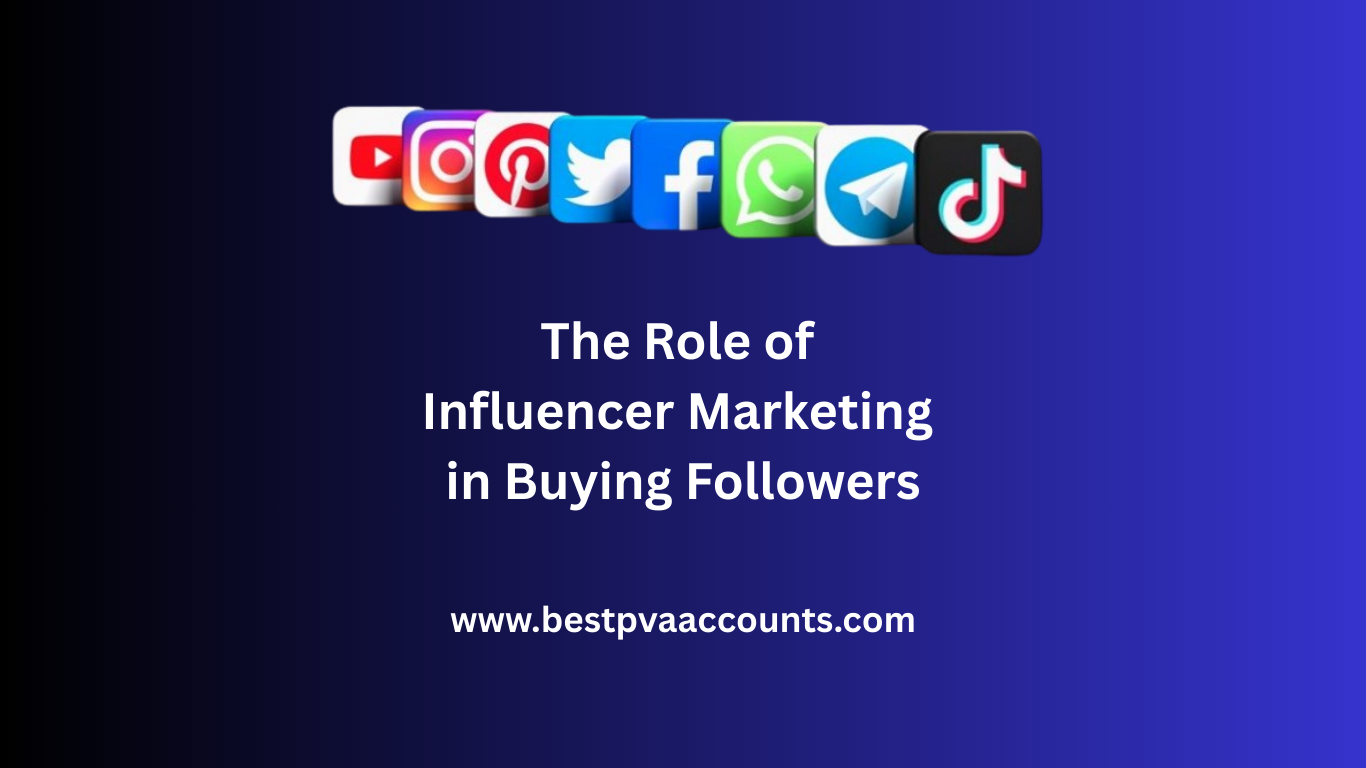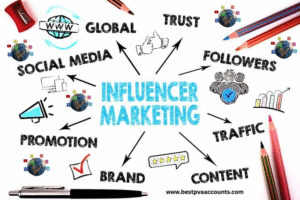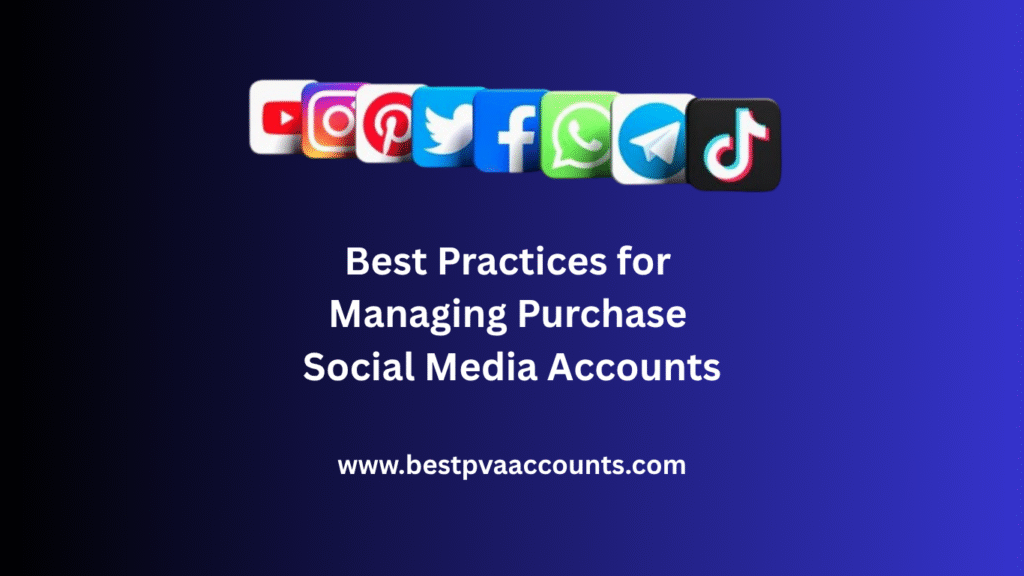The Role of Influencer Marketing in Buying Followers

In today’s digital world, influencer marketing has become an essential tool for businesses looking to increase their reach and engagement. But as the demand for social media influence grows, so does the temptation to buy followers. This blog post will explore the intricate relationship between influencer marketing and buying followers, providing valuable insights for business professionals keen on leveraging Social media for growth.
Introduction to Influencer Marketing
Influencer marketing harnesses the power of social media accounts personalities to promote products and services. These influencers, who have built large followings based on trust and expertise, can significantly impact consumer behaviour. By collaborating with influencers, brands can tap into their audiences, creating more authentic and engaging marketing campaigns.
Unlike traditional advertising, which often falls flat with younger audiences, influencer marketing feels more personal and genuine. It’s like getting a recommendation from a trusted friend. However, as this marketing strategy gains popularity, some influencers resort to buying followers to inflate their numbers and attract more lucrative partnerships.
Understanding Influencer Impact
Why do influencers wield such power? The answer lies in their ability to connect with their audience on a personal level. Followers often see influencers as relatable role models whose opinions genuinely matter. When an influencer endorses a product, it doesn’t feel like an ad; it feels like a trusted suggestion.
However, buying followers can undermine this trust. Fake followers don’t engage with content, leading to lower interaction rates and less effective campaigns. Brands must look beyond the numbers and prioritize authentic engagement over sheer follower count. Trust and genuine influence should be the core metrics for evaluating potential influencer partnerships.

Getting the Right Influencer Partnerships
Choosing the right influencers for your brand is crucial. Look for individuals who align with your brand values and resonate with your target audience. Consider their engagement rates, the authenticity of their followers, and the quality of their content.
Authenticity is key. An influencer with a smaller but highly engaged audience can be more valuable than one with millions of fake followers. Tools like Social Blade and HypeAuditor can help you analyze influencers’ followers and engagement to ensure you’re making the right choice. Remember, it’s not just about the numbers; it’s about genuine influence.
Measuring Campaign Success
Once you’ve partnered with the right influencers, measuring the success of your campaign is vital. Metrics to consider include engagement rates, brand mentions, and conversion rates. Use tools like Google Analytics and social media insights to track these metrics.
Buying followers can skew these metrics, making it difficult to gauge the true impact of your campaign. Authentic engagement is a better indicator of success. Look for genuine interactions, such as comments, shares, and direct messages, that show real interest in your brand. These metrics provide a clearer picture of your campaign’s effectiveness.
Addressing Ethical Concerns
The practice of Buying followers raises Ethical Concerns. It misleads brands and consumers, undermining the integrity of influencer marketing. Transparency and authenticity should be paramount. Influencers and brands alike should commit to honest and ethical practices.
Encourage influencers to disclose any sponsored content and be truthful about their follower numbers. Brands should also be transparent about their criteria for selecting influencers. Building trust with your audience is crucial for long-term success.
Building Authentic Engagement
Authentic engagement is the lifeblood of successful influencer marketing. Encourage influencers to create meaningful content that resonates with their audience. Interactive content, such as Q&A sessions, polls, and live videos, can foster deeper connections.
Focus on long-term partnerships rather than one-off promotions. Building a genuine relationship with influencers allows for more authentic and impactful collaborations. It also helps build trust with their audience, leading to better engagement and higher conversion rates.

The Role of Micro-Influencers
Micro-influencers, those with smaller but highly engaged followings, are becoming increasingly valuable. They often have niche audiences that trust their recommendations. Collaborating with micro-influencers can lead to higher engagement and more targeted marketing.
Micro-influencers are less likely to buy followers, as their success relies heavily on genuine engagement. Partnering with them can provide a more authentic and cost-effective approach to influencer marketing. Their smaller, dedicated audiences can offer higher conversion rates and more meaningful interactions.
The Dark Side of Buying Followers
Buying Social Media followers might seem like a quick way to boost an influencer’s numbers, but it comes with significant risks. Platforms like Instagram and Twitter regularly purge fake accounts, which can lead to a sudden drop in follower count and damage an influencer’s reputation.
For brands, partnering with influencers who buy followers can be a waste of resources. Fake followers don’t convert to customers, leading to poor ROI on marketing campaigns. Always prioritize authenticity and engagement over inflated numbers. The credibility of your brand depends on it.
Leveraging Technology for Better Results
Technological advancements are transforming influencer marketing. AI and machine learning tools can help identify genuine influencers and analyze engagement patterns. These tools can also predict trends and optimize campaigns for better results.
Leveraging technology can help brands avoid influencers who buy followers and focus on those with real impact. By using data-driven insights, brands can make more informed decisions and achieve higher ROI on their influencer marketing efforts.
Creating Compelling Content
Content is king in influencer marketing. Encourage influencers to create high-quality, engaging content that aligns with your brand. Visual content, such as photos and videos, tends to perform well on social media.
Collaborate with influencers to develop creative campaigns that tell a story. Authentic storytelling can captivate audiences and drive higher engagement. Ensure that the content is relevant and adds value to the audience, enhancing the overall impact of your campaign.
The Future of Influencer Marketing
As social media continues to evolve, so will influencer marketing. Brands must stay ahead of the trends to remain competitive. The rise of emerging platforms and new content formats calls for adaptive strategies and ongoing research into audience preferences. Short-form video content, such as that found on TikTok and Instagram Reels, has gained immense popularity and offers fresh opportunities for influencer collaborations.
Moreover, the emphasis on authenticity will likely intensify. Consumers are becoming savvier and can easily discern between genuine and insincere endorsements. Brands should embrace transparency, not only in their selection of influencers but also in promoting their own values and mission. This focus on integrity will foster trust and loyalty among audiences, creating stronger brand-influencer partnerships that resonate for years to come.
Harnessing User-Generated Content
User-generated content (UGC) complements Influencer marketing by harnessing the creativity and authenticity of a brand’s customers. By encouraging consumers to share their experiences with a product or service, brands can build a community around their offerings and enhance trust through peer recommendations. Campaigns that feature UGC not only showcase real-life applications but also create a sense of belonging among customers, as they see their contributions valued by the brand.
Incorporating UGC into influencer collaborations can amplify reach and engagement, providing a richer narrative that resonates with diverse audiences. Brands should create dedicated hashtags or contests that inspire customers to participate actively, ensuring that the content generated is both relatable and engaging, which can further boost brand loyalty and attract new followers.
Final Thoughts
Influencer marketing holds immense potential for brands looking to connect with their audience in a meaningful way. However, the practice of buying followers can undermine this potential. By prioritizing authenticity, building genuine partnerships, and leveraging technology, brands can maximize the impact of their influencer marketing efforts.
For businesses that choose to Buy Social Media accounts as part of their strategy, it’s essential to focus on profiles with real engagement and authentic audiences. This ensures that your investment supports genuine connections rather than inflated numbers.
Remember, it’s not just about the number of followers; it’s about the quality of engagement and the trust influencers have with their audience. Focus on meaningful interactions and long-term relationships to achieve lasting success.
Ready to take your influencer marketing to the next level? Explore our tools and resources to help you identify genuine influencers and create impactful campaigns. Together, we can build a more authentic and effective marketing strategy.












